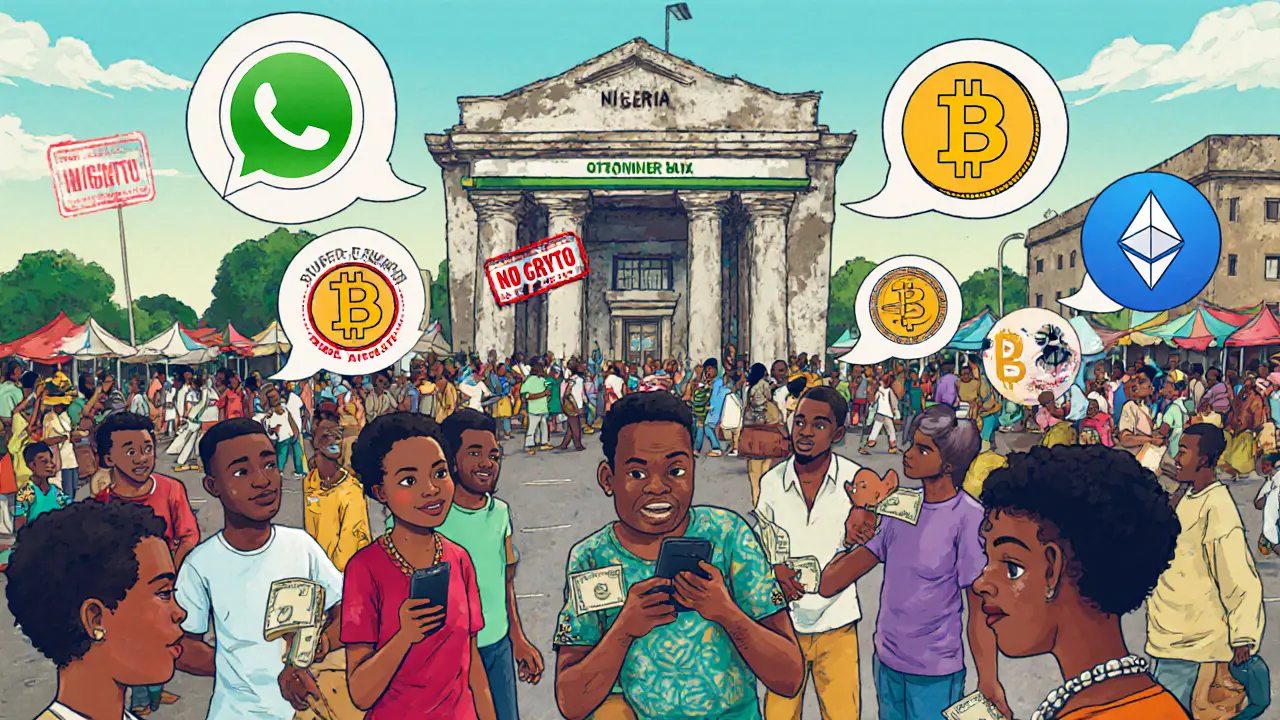P2P Crypto Trading: How Peer-to-Peer Crypto Works and Where It's Thriving
When you trade crypto through a P2P crypto trading, a system where buyers and sellers exchange digital assets directly, without a middleman like an exchange. Also known as peer-to-peer crypto, it’s the backbone of crypto access in places where banks and platforms are blocked. This isn’t just a workaround—it’s how millions keep trading when centralized exchanges shut them out.
P2P crypto trading relies on crypto privacy, the ability to transact without revealing identity or financial history. That’s why platforms like Nonkyc.io and hidden Telegram groups thrive in countries like Algeria and Iran, where owning crypto can mean fines or jail. These traders don’t use KYC forms—they use cash, mobile money, or bank transfers with no paper trail. The crypto sanctions, government restrictions that block access to global crypto platforms didn’t kill crypto in these places—they just moved it underground. And now, P2P networks are more resilient than ever.
It’s not just about survival. P2P trading also saves money. On centralized exchanges, you pay fees for deposits, withdrawals, and trades. On P2P, you negotiate your own rate. You might pay 1% more than the market price for instant Bitcoin in cash, but you avoid $50 wire fees or 7-day holds. That’s why traders in India, Nigeria, and Venezuela use P2P to move value across borders—no bank approval needed. The same tools that help someone in Algeria avoid a ban also help a student in Brazil buy USDT with their phone balance.
What you’ll find in this collection aren’t theory pieces. These are real stories: how Algerians trade Bitcoin through encrypted chats, how users in sanctioned countries bypass exchange blocks using local payment apps, and why privacy-focused platforms like Nonkyc.io are growing faster than big names. You’ll see how P2P trading connects to block time (faster confirmations mean safer trades), to tax havens like the UAE (where P2P profits stay untouched), and to scams like fake airdrops that target new traders. This isn’t about hype. It’s about how real people use crypto when the system tries to shut them down—and how you can do it safely too.
How Nigeria's Underground Crypto Economy Thrived During the Ban
Despite a 2021 banking ban, Nigeria’s underground crypto economy surged, with millions using P2P platforms to trade Bitcoin and stablecoins. Learn how people bypassed restrictions-and why the ban backfired.
read more

